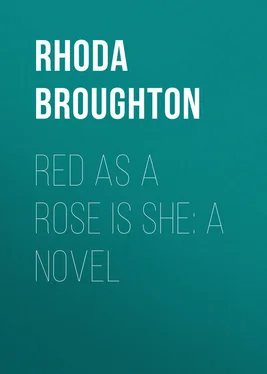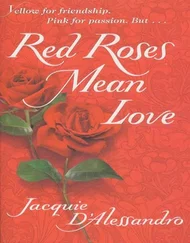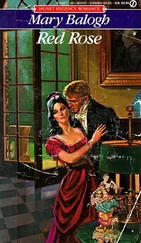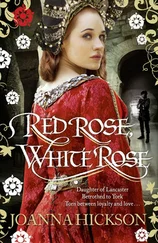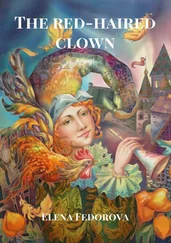Rhoda Broughton - Red as a Rose is She - A Novel
Здесь есть возможность читать онлайн «Rhoda Broughton - Red as a Rose is She - A Novel» — ознакомительный отрывок электронной книги совершенно бесплатно, а после прочтения отрывка купить полную версию. В некоторых случаях можно слушать аудио, скачать через торрент в формате fb2 и присутствует краткое содержание. Жанр: foreign_antique, foreign_prose, на английском языке. Описание произведения, (предисловие) а так же отзывы посетителей доступны на портале библиотеки ЛибКат.
- Название:Red as a Rose is She: A Novel
- Автор:
- Жанр:
- Год:неизвестен
- ISBN:нет данных
- Рейтинг книги:3 / 5. Голосов: 1
-
Избранное:Добавить в избранное
- Отзывы:
-
Ваша оценка:
- 60
- 1
- 2
- 3
- 4
- 5
Red as a Rose is She: A Novel: краткое содержание, описание и аннотация
Предлагаем к чтению аннотацию, описание, краткое содержание или предисловие (зависит от того, что написал сам автор книги «Red as a Rose is She: A Novel»). Если вы не нашли необходимую информацию о книге — напишите в комментариях, мы постараемся отыскать её.
Red as a Rose is She: A Novel — читать онлайн ознакомительный отрывок
Ниже представлен текст книги, разбитый по страницам. Система сохранения места последней прочитанной страницы, позволяет с удобством читать онлайн бесплатно книгу «Red as a Rose is She: A Novel», без необходимости каждый раз заново искать на чём Вы остановились. Поставьте закладку, и сможете в любой момент перейти на страницу, на которой закончили чтение.
Интервал:
Закладка:
Robert is not much like her ideal, certainly – the ideal whose picture she has been painting life-size on the canvas of her mind during the vacant moments of the last two transitional years; but if we all waited to be wed till our ideal came knocking at our doors, the world would be shortly dispeopled of legitimate inhabitants. Miss Craven's ideal is dark; at seventeen, most ideals are dark: he has long, fierce, sleepy, unfathomable eyes. Robert is straw-coloured: his eyes are blue; very wide awake: they say exactly what his tongue does, neither more nor less, and there is absolutely no harm in them – a doubtful recommendation to a woman. The ideal's nose is fine cut, delicately chiselled; his cheeks are a little haggard, slightly hollowed and paled by five and thirty years or so of the reckless life of one that has lived, not existed. Robert's nose is broad and blunt; his cheeks have the roundness and bloom of a countryman's five and twenty. The ideal breaks most of the commandments with easy grace; is inclined to be sceptical and a little sarcastic over the old world beliefs, and facts hoary with time and reverence. Robert nightly prays on bent knees to be "not led into temptation but delivered from evil;" he believes firmly every thing that he ever was taught, from the Peep of Day upwards, and he could no more shape his honest lips into a sneer than he could square the circle. Before the fell shafts of the ideal's eyes women lie slain as thick as Greeks lay beneath the arrows of Apollo in the Iliad's opening clash; the number of Robert's female victims is represented by a duck's egg.
"Je ne comprends pas l'amour sans effroi," says one of the characters in the best French novel I have read this many a day. The ideal inspires fear equally with love; you can imagine his being harsh, fierce, cruel, to the woman he loves. In none of the most hard-hearted of created beings could Robert provoke alarm. Children who see him for the first time come and thrust their little dimpled hands into his, and laugh up with confident impudence in his face. Dogs to whom he has never been introduced come and rub their shaggy heads against his knees, and curl and wriggle about his friendly feet.
Esther can indulge no faintest hope that he will bully her. The ideal rides straight as a die, and is as much a part of his horse as a centaur. Robert is very fond of getting a day's hunting when he can afford the two guineas requisite for the hiring of a horse, which is not very often; and he likes to get his money's worth by blundering blindly over everything that comes in his way, but he has about as much idea of riding as a tailor or a cow. The ideal is an idol to be set up and worshipped – a Baal to be adored with tears and blood and knife-gashings. Robert is a worshipper to be encouraged by a cold look and smile flung to him every now and then, like a bone to a dog, or spurned away with disapproving foot, as Cain was from his unaccepted altar. To worship is to a woman always sweeter than to be worshipped. To worship one must look up; to be worshipped one must look down…
Come with me this August Sunday through the wood from Glan-yr-Afon to Plas Berwyn – from Esther's home to Robert's. It is but a few hundred yards of shade and shine, a small, scarce trodden wood-path whose narrow, faint track the ripe grasses and the seeded ferns have wellnigh obliterated, flinging themselves across it in all the abandon of their unspeakable grace. The apples' round faces are reddening in the little Plas Berwyn orchard; the shorn fields slope barely, slantwise along the hill-side in their yellow stubble. For weeks and weeks the corn has been whitening under the sun's hard, veilless stare, and now at last it has fallen; the barley has bowed its bearded head beneath the sickle's stroke, and the oats their tremulous ringlets. They are all gathered in, and garnered in Mrs. Brandon's stout, well-thatched stacks; to thatch a stack is the one thing a Welshman can do.
It is an hour past noon, and the Reverend Evan Evans has released the bodies of his congregation from that white-washed, tumble-down old barn that he is pleased to call his church, and their minds from the tension necessary to take in the ill-strung-together, misapplied texts that he is pleased to call his sermon.
Plas Berwyn is a house of about the same size as Glan-yr-Afon, but the rooms do not look so large, they are so full of large things and large people. The dining-room is crowded up with a great mahogany table, a great mahogany sideboard, great mahogany chairs – inconvenient relics, fondly clung to by people who from a larger house have subsided into a smaller one – a sort of warranty of past respectability like the cottager's japanned tea-tray and brass candlesticks. There is an atmosphere of lumbersome age and gravity about the whole place; none of the fragrance and light and melody that youth, sheer youth, even divorced from any other attractive qualities, brings with it.
Of all the gods of the Greek mythology I will bring my votive crowns and my salt cakes to Bacchus. Not the bloated old gentleman striding drunk over a barrel, as we figure him, but Bacchus eternally young. What is there so worthy of adoration in this aging, wrinkling world as never ending youth?
Most people are cross and most people are unusually hungry on Sunday. I do not know why it is, but if you observe your acquaintance you will find it to be true. Hungry or not, the Brandons are at dinner, dining frugally and sparely on cold roast beef and cold apple tart. Nothing hot ever figures on the Brandons' Sabbath table, not even potatoes; indeed, unless they boiled themselves, and hopped out of the pot judiciously when they found themselves done, I do not see how they could, as on the Sabbath morn every living soul at Plas Berwyn, every reluctant scullion and recalcitrant housemaid, is trundled off to church, the house-door locked, and the key deposited in Mrs. Brandon's pocket.
All the Brandons hate dining in the middle of the day, consequently they always dine in the middle of the day on Sunday. Everybody knows that there are few things more distinctly unpleasant than to sit in the same room in which you have your meals; to live with the unending smell and steam of departed viands up your nose and eyes and ears: consequently the Brandons always sit in the dining-room on Sunday. Sunday is to them a sort of aggravated Ash Wednesday and Good Friday rolled into one. On Saturday night Miss Bessy Brandon swoops down upon all novels, travels, biographies, magazines, poetry books, that may be lying about, makes a clean sweep of them and consigns them to disgrace and a cupboard till the return of Monday releases them.
The Brandon family at the present moment have got their Sunday faces and their Sunday clothes on, and they misbecome most of them very sorely. Very few men look their best in their Go-to-Meeting clothes. For some unexplained reason, a black coat made by a country tailor shows its shortcomings more plainly than a coloured one. The garment that cases Bob's broad shoulders would draw tears from Mr. Poole's eyes, could he see it. As for Mrs. Brandon, she always has more or less of a Sunday face on – which I do not say in any dispraise, but merely to express a sober, steadfast face, unfurrowed by any violent gust of mirth or blast of anger. She is like Enid and her mother,
"clad all in faded silk,"
and on her breast she has a miniature of the departed Brandon, in Geneva gown and bands, about as big as a teacup, and with two small glutinous curls of the departed's hair at the back. It is so long ago since he died, that she must have forgotten all about him – what he was like, even; but she still wears his effigy, as an old inn continues to hang out the sign of the Saracen's Head, though it is centuries since ever a Saracen has been seen on the earth's face.
Читать дальшеИнтервал:
Закладка:
Похожие книги на «Red as a Rose is She: A Novel»
Представляем Вашему вниманию похожие книги на «Red as a Rose is She: A Novel» списком для выбора. Мы отобрали схожую по названию и смыслу литературу в надежде предоставить читателям больше вариантов отыскать новые, интересные, ещё непрочитанные произведения.
Обсуждение, отзывы о книге «Red as a Rose is She: A Novel» и просто собственные мнения читателей. Оставьте ваши комментарии, напишите, что Вы думаете о произведении, его смысле или главных героях. Укажите что конкретно понравилось, а что нет, и почему Вы так считаете.
